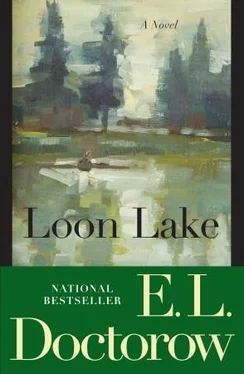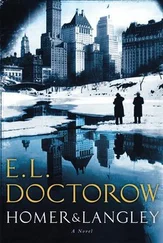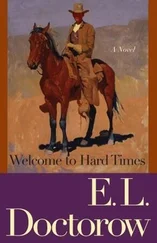his great accomplishment was his own private being the grandness and the depth of his failed affections each of his representations of himself at the critical moments of his past contributed to the finished man before me
Child Bride in a Zen Garden by Warren Penfield
In a poem of plum blossoms and boats poled down a river
Behind a garden wall the sun lighting its pediment of red tile
A fourteen-year-old girl aches for her husband.
One bird whistles in the foliage of a tree that stands on crutches.
Small things are cherished, a comb a hand mirror a golden carp
in a pool no more than eight inches deep. Curved wooden foot
bridges of great age connect the banks of ponds. But everywhere
we know on the map are mountains with vertical faces
and thunderous waterfalls, escutcheons of burning houses
and suicidal armies, history clattering in contradistinction to
the sunlight melting itself in the bamboo grove.
Oh the fifty-three stations of the Tokaido. On the embankment
above the rice paddy travelers crouch under slants of rain.
Messengers run with their breechcloths flapping. Merchants
beat their donkeys. Boats with squared sails make
directly for shore. Paper lanterns slide down the waves.
Rain like the hammers of sculptors works the curved slopes
of water. When the sky clears at sunset fifty-three prefecture
officials arrive in the stations of the Tokaido. Fifty-three
women are prepared for them. Sunlit legends will be made tonight.
Beans are picked from the gardens, plump fowl slaughtered, and
in castles above the road unemployed warriors duel the firelight.
They weep they curse they raise wine cups to honor. Saints
of the wrong religion go unrecognized in the darkness beyond the
lighted windows of the inns. And at the end of the Tokaido
at the top of an inaccessible mountain sits the emperor himself,
a self-imperator, a self impersonating a self in splendor
in his empty room its walls painted with long-legged waterbirds,
its floor covered with ministers lying face down attending him.
The emperor is lacquered, his sword is set with suns, while
in another room doctors dispute the meaning of his stool.
Oh compact foreign devils flesh of rice
Everywhere we are smaller than the landscape.
I sit on the wood promenade overlooking my garden and I
am the real emperor. The small twisted tree is very old and has a
name. The rocks like islands in the sea of raked
gravel have names. The gravel waves break upon the rocks.
wall. I run across the gravel sea
and spy on her through the gate. Her blue-black hair is
undressed, like a child’s. She sits on a bed of moss, her
bowed neck as long as a lady’s of the court. The words rise
and fall in my throat growling and humming and making tunes.
I am breaking the laws of my religion. She is alert now to
the aviary of our language and stares at me with her wet mournful
eyes, the track of one tear surmounting the pout of her lip
and disappearing in the corner of her mouth. I speak and she
shifts to her knees, deferentially places her hands flat upon
her thighs. The soles of her feet are pale. She listens.
She is as still as the fieldmouse in the talons of the hawk.
Oh the fifty-three stages of the Tokaido. The old monk and the girl
clamber up on the rock path. Along the path falls a stream
so vertically on rocks that the water, broken into millions of
drops, bounces pachinko pachinko like pellets of steel.
We find a ledge overlooking the ocean. I aspire to goodness.
I aspire to the endless serenity of the realized Buddha.
In the sun on the rock ledge I remove her clothing. I
remove my clothing she averts her eyes. We hunker in the
hairless sallow integument of our kind. Her haunches are
small and muscular. Her thighs are slender. Her backbone
is as ordered as the stones of a Zen garden. I see reflected
in the polished gray rock under her the entrance to her life.
It is like the etching of a fig.
Raising my hand in the gesture of tenderness, I see her chin
lift in trust and at that moment I fling myself at her
and she falls into the sea.
She falls in a slow spiral, wobbling like a spent arrow.
I feel her heart beating in my chest.
I feel all she is, her flesh and bone, her terror in the sky.
The field of his accomplishment was his own private being, the grandness and depth of his failed affections. Each of his representations of himself at the critical moments of this past contributed to the finished man before me. He proved everything by his self-deprecation, his sighs, his lachrymose pauses, his prodigious thirst for wine, and he proved it in the scene or two with Clara, when, at an hour he somehow always knew, he would get me to help him over to her cottage not five minutes since she had come in herself, her make-up and hair and dress all showing the use of the evening, and she in some sort of sodden rage. What excited Mr. Penfield was the idea of rescue. He wanted to save her, take her away, carry her off. It was the pulsating center of his passion. And she seemed now not to understand, as if they spoke different languages, hers being Realism.
“War-rin,” she would say, “do I have to spell it out?”
“Oh God,” he’d cry, lifting his eyes, “oh God who made this girl, give her to me this time to hold, let me sink into the complacencies of fulfilled love, let us lose our memories together and let me die from the ordinary insubstantial results of having lived!”
“Goddamnit,” Clara shouted, and then, appealing to me, the audience, a role I embraced as I would any she chose, “what does he want from me? Oh Jesus! Joe,” she’d say when, invariably, he broke down, “why did you bring him? Take him home. Get this fucking drunk out of here.”
Another night or the one after, I went over to her cottage alone. I supposed it was midnight. No light on. It didn’t matter. I sat in the shadow of her porch and I folded my arms and waited. A strong wind blowing over the mountains and sounding in the trees around the cottage. The trunks of the pine trees swayed and creaked. I sat with my back to the door and drew up my knees. I might be hearing her in her rut, singing somewhere with the wind going past an open window. That was all right. That was all right. If the poet could have her on her terms and the rich man on his, I could have her on mine. My revelation. Maybe she traveled like a princess on a private train, maybe poets thought they recognized her, but I knew her accent, she was an Eastern industrial child, she had come off streets like my streets she was born of the infinite class of nameless workers my very own exclusive class. Jesus, I had pressed against girls like her in the hallways, I had bent them backward on the banister, I had pulled their hair I had lifted their skirts I had rubbed them till they creamed through their underpants.
I reached over my head and tried the doorknob. Open. I decided to wait low ceiling. The hearth was cold. I put in some paper and kindling and got a fire going and stood with my back to the fire.
The green livery had as little regard for her as they did for Penfield. The place was a mess. I saw traces of our first party. Dirty dishes in the little alcove kitchen. Not that she’d care. I looked in her bedroom. Her clothes everywhere, stockings twisted and curled like strips of bacon, step-ins in two perfect circles on the floor as if disengaged in a meditative moment, or flung across a lampshade as if drop-kicked.
Poor Mr. Penfield. I knew what he couldn’t possibly know. I knew what made his sympathies obsolete. Clara and Bennett had had breakfast together on the morning after he arrived. I managed to be raking leaves at the foot of the terrace wall under their line of sight. It was a bright windy morning and the clouds actually were below us over the lake and drifting through the trees on the mountains. “I think clouds should stay in the sky where they belong,” Clara said, “don’t you?” And Bennett had laughed.
Читать дальше











